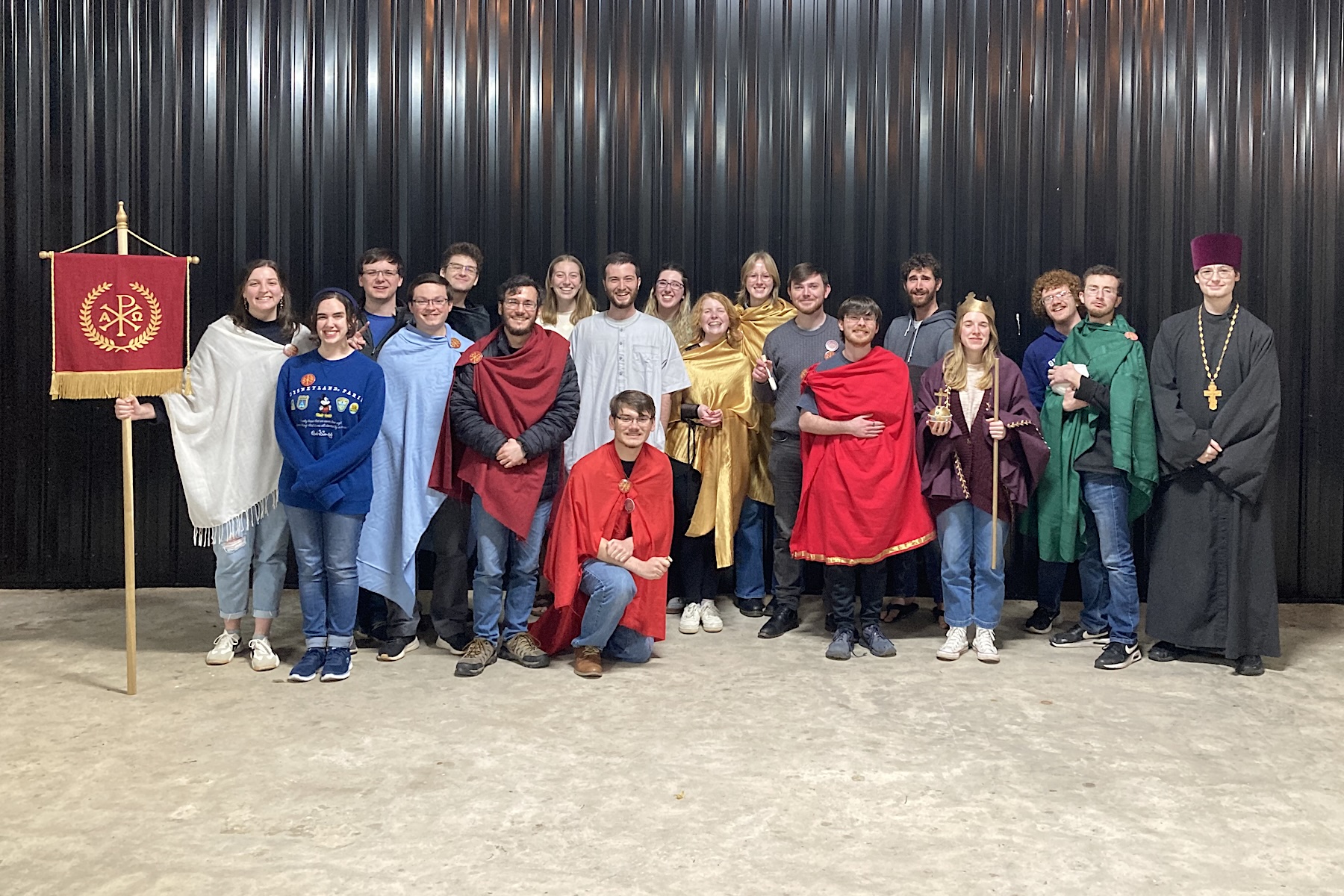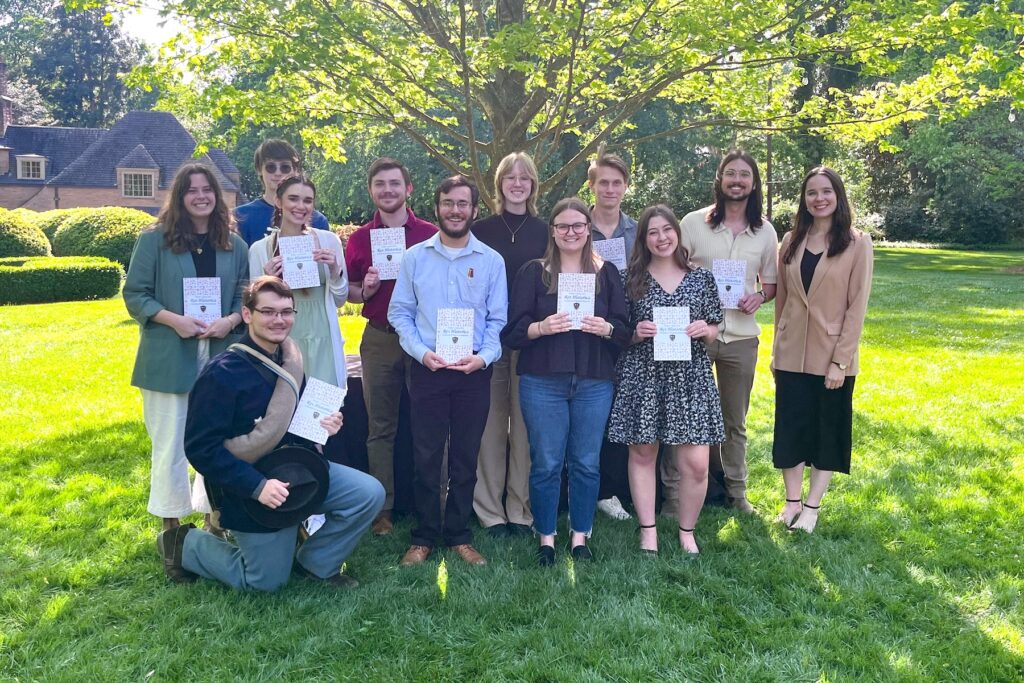The national history honors society, Phi Alpha Theta, annually recognizes the best chapters at colleges and universities of different sizes. This year, Anderson University’s chapter, Alpha Rho Epsilon, received two honors: Best Chapter for Division II Schools (3,000-6,000 students) and the Journal Award, recognizing undergraduate print journals, for Res Historica, Anderson’s student-produced historical journal.
The third volume of Res Historica placed third in the nation under the leadership of recent graduate and past Phi Alpha Theta President Johnathan Sorce and current senior Samuel Sanders. This is the second year in a row Res Historica has been recognized as an award-winning journal.
“I’m excited that our chapter is receiving recognition for its amazing work,” said History and Political Science major Gracie Hembree. “It makes me super proud of my program, because I’m on the inside of it and I know how awesome it is just from having the experiences with my professors.”
This past year, the Alpha Rho Epsilon chapter sent students to conferences, published their journal Res Historica, ran a workshop on careers in history, inducted several new members and sponsored a Women’s History Month lecture.
“It was a wonderful opportunity for both Dr. Renberg and several of our history majors to attend and participate in the conference,” said Chair of the Department of History and Political Science Dr. Roger Flynn. “Engaging with leading scholars and exploring current research trends in the field not only enriched Dr. Renberg’s teaching but also provided our students with a unique opportunity that enhanced their academic and professional growth.”
Hembree commented that attending the recent conference in her hometown of Spartanburg built up her confidence.
“People were there from all over the area—all different types of people and they all loved the same thing;. History can be really connecting,” Hembree said. “It really has helped me gain confidence in just knowing the vibes of a conference… My friends and I are going to a conference in January and I am presenting. I think if I hadn’t gone to this conference and seen the way that it was, I would have been too nervous. It’s been very helpful.”

AU History majors have developed unique ways for individuals to become immersed in history. An example is Augustus, a role-playing game (participants pictured above) developed by Sorce, which brings to life the people and politics of the Byzantine era in Eastern Europe. Logan Davis, a double major in History and Accounting, said, “It was a blast, so much so that I felt that it was necessary to continue the game and make it a mainstay at AU.”
“I think that by participating in the game and in the running of the game, it can really help you, whether you’re a history student or not. It helps you to understand concepts and systems, like the Byzantine royal system… It helps you to better connect with those time periods and the events that are happening,” said Sanders, who is a double major in History and Secondary Social Studies Education.
According to Hembree, history students were also able to engage in comprehensive research on the Morris Street cabins, a significant landmark of African-American history built before the Civil War. This research was conducted under the supervision of Dr. Lindsay Privette, another history faculty member.
“We were able to access older maps and really get into that part of history, which is cooler than I thought it was going to be because I mostly research secondary sources,” Hembree said. “This was actually creating our own research.”

